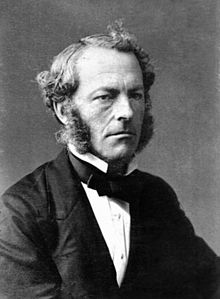The Stokes Society has a long and distinguished history. The history is best explained by the Presidential Lecture of Mr. Nick Fox on December 1st, 1992…
Of Germs and SPOONS
We are now at the 660th meeting, which at about 15 per year implies that the Society was founded 44 years ago (1948). It was, however, founded in October 1909 by six undergraduates who read papers to each other. At the 50th meeting the name was changed to Pembroke College Science Society. There was a lull after the 63rd meeting due to the 1st World War; there are 10 members on the War Memorial.
In 1932 the first Annual Dinner was held (the second was to be 1945!). The speaker then read out a lecture about “Science in Nazi Germany” from the Minutes Book. After the 2nd World War the constitution was changed to allow for more than 24 members. The official tie was black showing a red golf ball dropping into treacle. Some ties appeared showing the ‘F.ds’ equation, probably from the Caius Green Society. Scarves appeared in the 80’s, and were originally black with a light green stripe – you could get an extra wide one for an additional £1.
In the 50’s the society branched out and organised visits to Fisons, an Engineering Works and a Brewery.
In 1966 the first lady was admitted as a member.
In 1968 the Dean’s cat turned down an offer of honorary membership.
In 1985 attempts to deny a different cat membership on the grounds of not being a scientist were thwarted.
At the 575th meeting the Society was renamed “Stokes’ Pembroke Old Order of Natural Sciences” – “SPOONS”. At the 576th meeting the President tried to return the name to “Pembroke College Stokes Society”. He failed.
During the 706th Meeting, on Monday, 22nd November, 1993, the President, Mr. D. Boulton, tabled a motion to shut down the society. This was due to the failiure of any member to show interest in the position of President and the poor attendance of meetings. The vote on the issue was not taken as a new motion from the floor was suggested by Mr. John Evans, which was that the Society be allowed to reform. This was passed and an Interim Committee was elected.
The following extract was recorded in the Minutes Book:
A Report on the Current State of the Stokes Society
Having lain dormant for nearly two years, the Stokes Society is becoming active again following the efforts of Mr Adam Farebrother, who has volunteered to be the President, and Miss Sarah Bridle, who agreed to be Secretary. They owe great thanks to Dr Martin Baxter for his encouragement and his co-ordination of help from college.
A stunning term-card has been arranged and much discussion is still taking place to ascertain ways of ensuring the future success of the society. It is suggested that the amount of formality be reduced as it is considered that while being fun for some, it is a potential barrier fro many others who would just like to join for the talks. The cost of joining the society is a bargain £1 for one year and £2 for life.
A very successful super squash was held, at which over forty people signed on the list for more information…
Who is Stokes?

Sir George Gabriel Stokes, 1st Baronet, PRS (13 August 1819 – 1 February 1903), was a former master of Pembroke College and also held the post of Lucasian Professor of Mathematics at the University of Cambridge. Born in Ireland, he is known for his work into fluid mechanics (such as the Navier-Stokes equations and Stokes’ law) and mathematics (such as the Stokes phenomenon in complex analysis). There are also several other concepts which bear his name, such as Stokes’ theorem, the Stokes shift and the Stokes number.
